There is a proposal that in case a person put up for a vote of confidence is rated as having no confidence by more than half of the total number of delegates, a more severe form of punishment should be applied, which is dismissal or removal from office.
On the afternoon of May 30, continuing the working program of the 5th Session, the National Assembly listened to Chairman of the Law Committee Hoang Thanh Tung present the Report on the examination of the draft Resolution on taking a vote of confidence, a vote of no confidence for people holding positions elected or approved by the National Assembly and the People's Council (NDC) (amended). The Chairman of the National Assembly chaired the meeting, and Vice Chairman of the National Assembly Nguyen Khac Dinh directed the content of the meeting.
 |
| The National Assembly Chairman chaired the meeting. |
Agree to submit to the National Assembly a resolution on taking a vote of confidence and a vote of no confidence
Presenting the Report on the review of the draft Resolution on taking a vote of confidence, a vote of no confidence for people holding positions elected or approved by the National Assembly, People's Councils (amended), Chairman of the Law Committee Hoang Thanh Tung said that the Law Committee agreed with the necessity of amending Resolution No. 85/2014/QH13 of the 13th National Assembly on taking a vote of confidence, a vote of no confidence for people holding positions elected or approved by the National Assembly, People's Councils. The draft resolution dossier has been carefully and seriously prepared by the National Assembly Standing Committee, directing relevant agencies to prepare it in accordance with the provisions of the Law on Promulgation of Legal Documents, meeting the conditions to be submitted to the National Assembly for consideration and approval at the 5th Session.
Regarding the order and procedures for issuing resolutions, the Law Committee agreed to submit the draft Resolution to the National Assembly for consideration and approval at the Fifth Session according to the shortened order and procedures to ensure that the organization of the vote of confidence at the National Assembly and People's Councils according to the new regulations will be carried out at the session at the end of 2023, meeting the requirements in Regulation No. 96-QD/TW dated February 2, 2023 of the Politburo on taking votes of confidence for leadership and management positions and titles in the political system.
Notably, regarding the scope of subjects for votes of confidence and votes of no confidence at the National Assembly and People's Councils (Article 2), the Law Committee agrees with the scope of subjects for whom the National Assembly and People's Councils will take votes of confidence and votes of no confidence and cases where votes of no confidence are not taken as stipulated in Article 2 of the draft Resolution.
"The addition of the regulation that no vote of confidence is required for people who have been on leave for serious illness with confirmation from a medical facility and have not been in charge of work for 6 months or more according to the decision of a competent agency or individual as stated in Clause 5, Article 2 of the draft resolution has a practical basis, demonstrates humanity and is consistent with the requirements of taking a vote of confidence at the National Assembly and People's Councils," said the Chairman of the Law Committee, adding that there were also suggestions that it is necessary to clearly state that the period of not being in charge of work is 6 consecutive months or more to ensure strictness.
In addition, to have a basis for the National Assembly to consider and decide, some opinions in the Law Committee suggested that the drafting agency should explain more clearly the reason why the draft resolution does not include a number of positions elected or approved by the National Assembly or People's Council in the list of positions eligible for a vote of confidence, such as Judges of the Supreme People's Court, members of the National Defense and Security Council, Deputy Heads of the People's Council, and Jurors of the Supreme People's Court.
 |
| Chairman of the Law Committee Hoang Thanh Tung. |
More than half of delegates rated "no confidence" and recommended dismissal.
Notably, regarding the consequences for those who are subject to a vote of confidence or a vote of no confidence, Chairman of the Law Committee Hoang Thanh Tung found that the provisions in the draft resolution ensure compliance with the requirements for timely and strict handling of officials with low confidence levels. Therefore, the Law Committee basically agrees with the provisions on the consequences for those who are subject to a vote of confidence or a vote of no confidence as in the draft resolution.
The Law Committee proposed to revise the direction that in case the person subject to the vote of confidence has more than half to less than 2/3 of the total number of delegates giving a low confidence rating and does not resign, the National Assembly Standing Committee shall submit to the National Assembly, and the People's Council Standing Committee shall submit to the People's Council for a vote of confidence (Instead of the provision that "the competent agency or person recommending that person for the National Assembly or People's Council to elect or approve is responsible for submitting to the National Assembly or People's Council for a vote of confidence" as in the draft resolution).
In addition, there are opinions that the purpose of taking a vote of confidence is to help officials see their level of trust in order to "self-examine" and "self-correct". Therefore, it is proposed to design regulations in the direction that in cases where 2/3 or more of the total number of delegates rate their trust as low, there should still be a mechanism for them to proactively resign. In case they do not resign, the agency or competent person who recommends that person to the National Assembly or People's Council for election or approval will submit to the National Assembly or People's Council for consideration of dismissal or approval of the proposal for dismissal of that person.
On the other hand, there are also opinions that the vote of confidence should be identified as a step in the process of considering discipline for officials who hold positions elected or approved by the National Assembly or People's Council. Because, according to the provisions of the draft resolution, cases that are put up for a vote of confidence at the National Assembly or People's Council are often due to the discovery of signs of violations or through the vote of confidence, it is shown that the person elected or approved by the National Assembly or People's Council has a low level of confidence.
"The most serious consequence for those who are subject to a vote of confidence and a vote of confidence as stipulated in the draft resolution is that the National Assembly and the People's Council decide to dismiss or approve the proposal for dismissal," said Chairman Hoang Thanh Tung, adding that this opinion suggests that in the case where a person subject to a vote of confidence is rated "no confidence" by more than half of the total number of delegates, a more severe form of handling should be applied, which is that the National Assembly and the People's Council remove or approve the proposal for dismissal of that person.
NGUYEN THAO
Source






![[Photo] Magical moment of double five-colored clouds on Ba Den mountain on the day of the Buddha's relic procession](https://vphoto.vietnam.vn/thumb/1200x675/vietnam/resource/IMAGE/2025/5/9/7a710556965c413397f9e38ac9708d2f)
![[Photo] Prime Minister Pham Minh Chinh chairs a special Government meeting on the arrangement of administrative units at all levels.](https://vphoto.vietnam.vn/thumb/1200x675/vietnam/resource/IMAGE/2025/5/9/6a22e6a997424870abfb39817bb9bb6c)








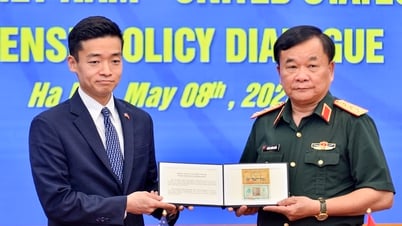

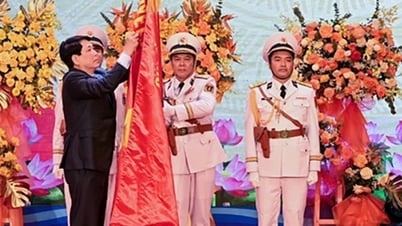

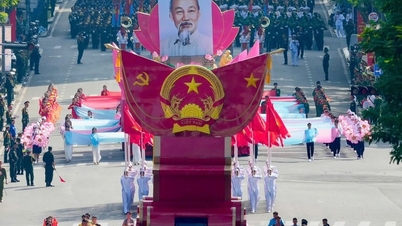
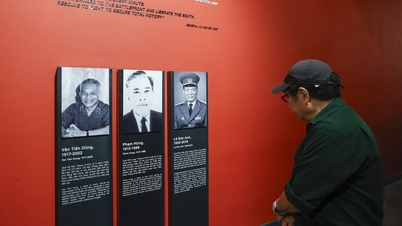





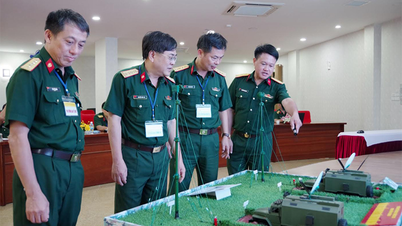

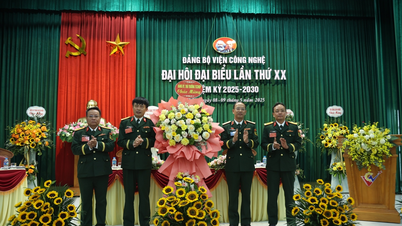
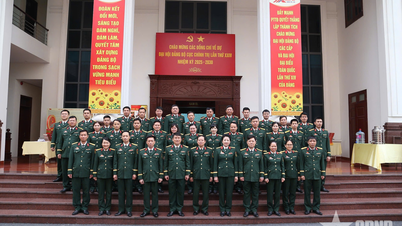
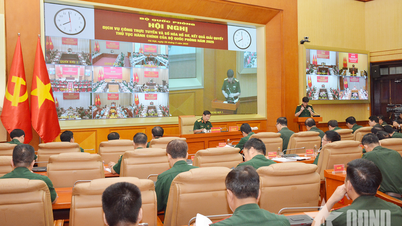





































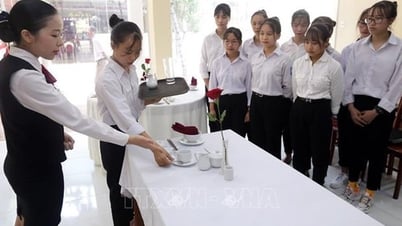

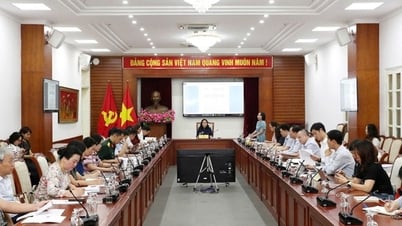

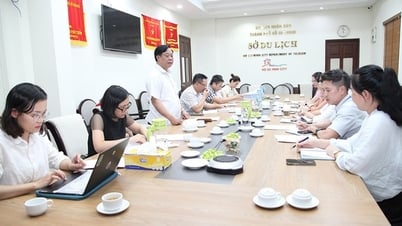
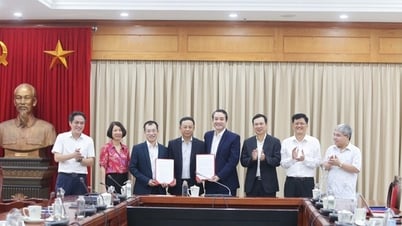




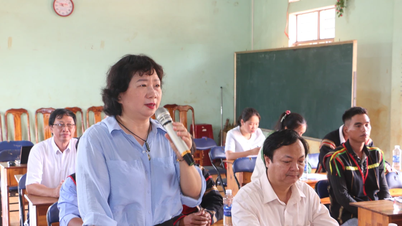



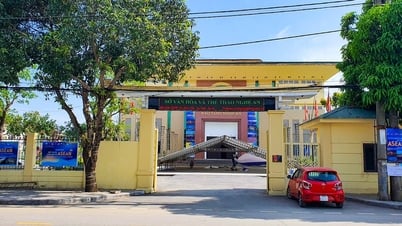

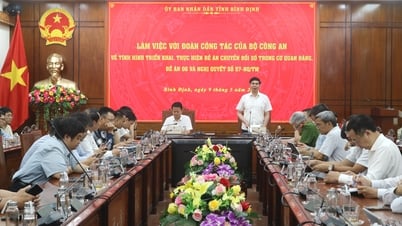

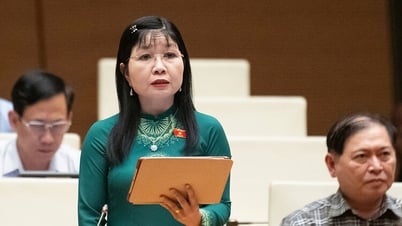











Comment (0)